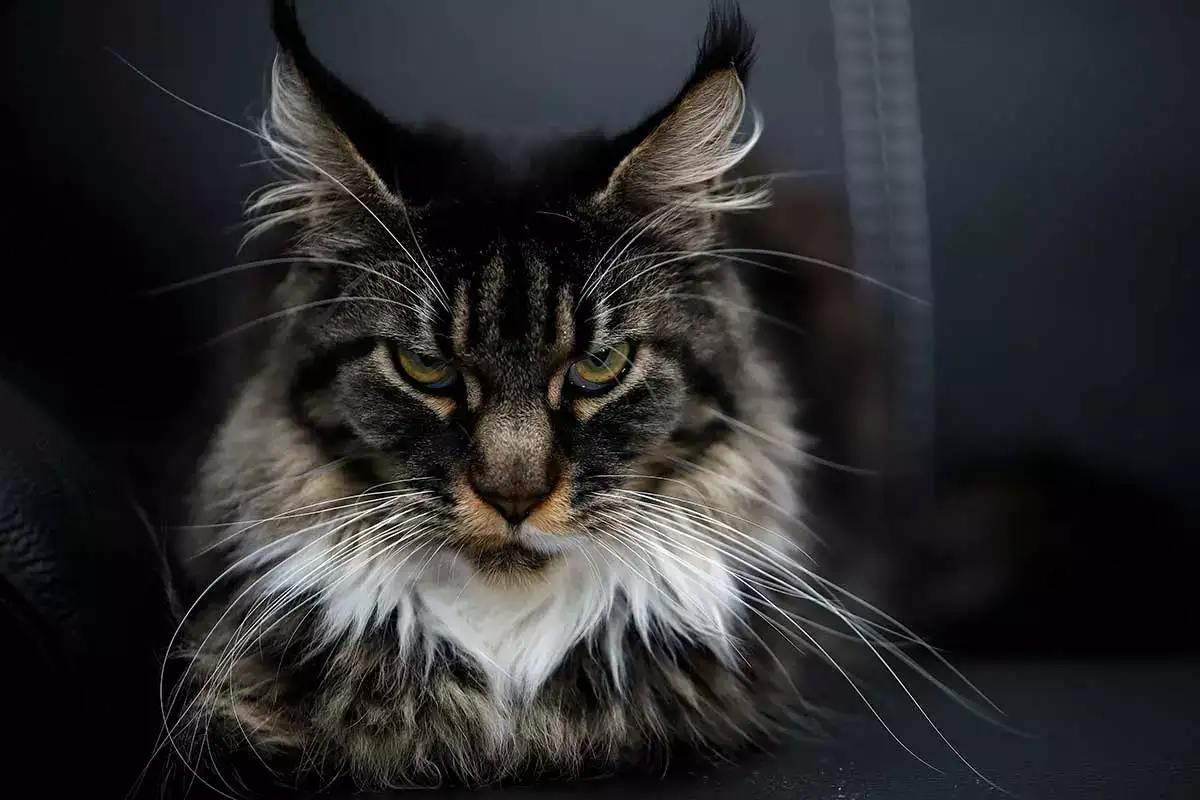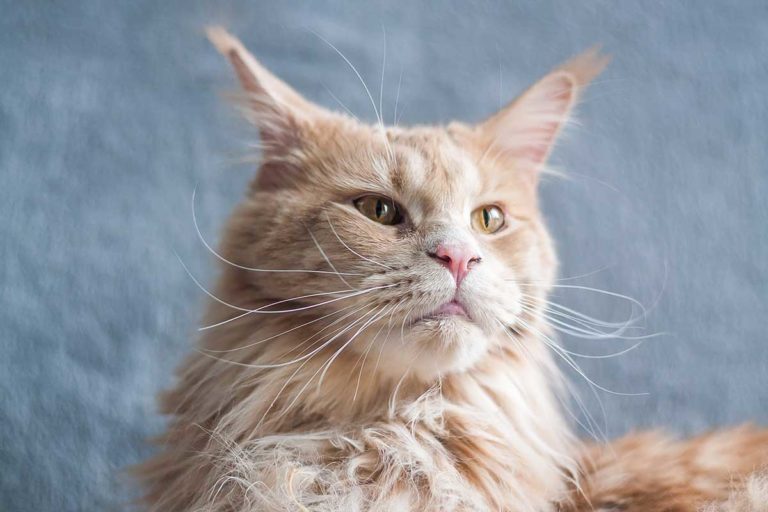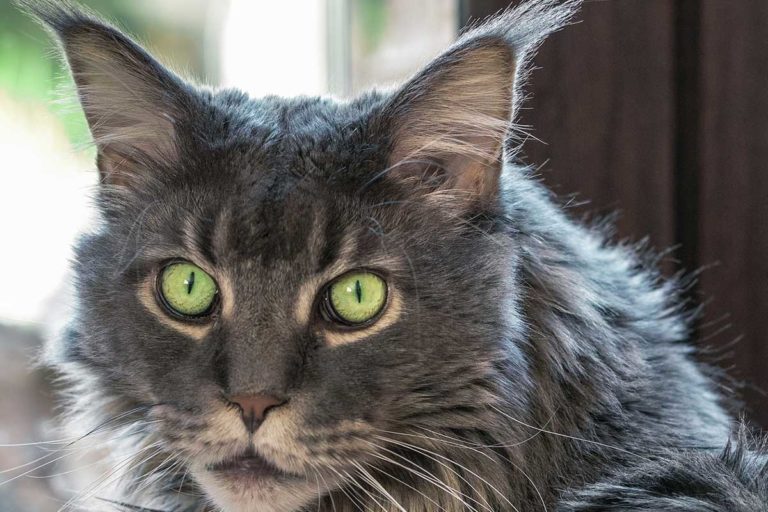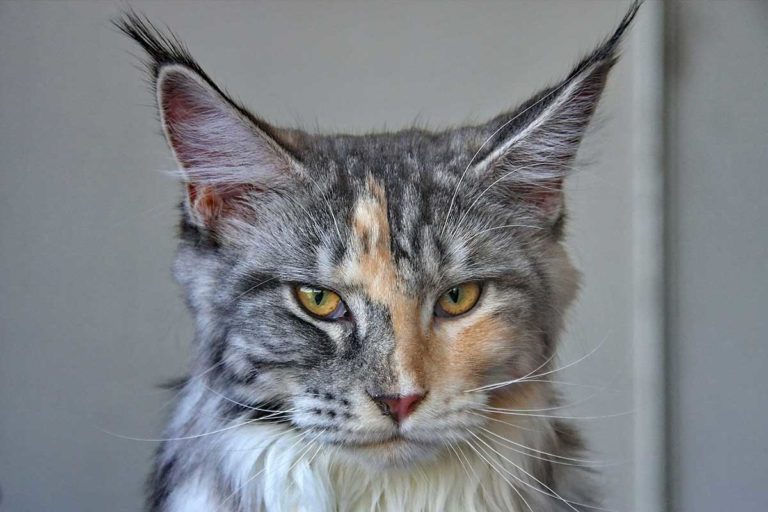
A Maine Coon lives between 9 and 13 years. It is a robust and healthy cat breed despite its size. Find out how to increase its life expectancy.
If you like big fur balls with a playful, naughty, goofy and affectionate nature, you may want to adopt a Maine Coon cat!
These cats are listed as some of the friendliest animals to humans and can make excellent pets in a home environment.
Maine Coons are known to be gentle with children as well. If you’re new to this breed, you’ll have a blast.
All pet owners are concerned about the lifespan of their cat, and as a large breed, the Maine Coon raises many questions.
What is the lifespan of a Maine Coon cat?
The Maine Coon lives on average between 9 and 13 years. It is a robust and healthy cat breed despite its size. The Maine Coon holds the record for the oldest living cat at 31 years. The lifespan of a Maine Coon depends on its genetics, diet and an active and healthy lifestyle.
There is so much to learn about this fascinating animal and what you can do to ensure your kitten has a long and happy life!
General health, life expectancy and character
The Maine Coon is a medium to large cat with a muscular body, weighing between 11 and 25 pounds.
The average life expectancy of Maine Coon cats is 9 to 13 years.
Their rugged physique was intended for outdoor activities that primarily involved keeping rodents out of barns. More recently, Maine Coons have also become excellent pets.
They are known for their playful nature.
They always enjoy a good game and, like dogs, they can play ball. Although Maine Coons are mostly domesticated today, they keep their hunting skills honed through frequent training.
With a Maine Coon at home, you don’t have to worry about rats and other miscreants. These cats are known to be patient with children.
Although they are not lap cats, they need their owner’s closeness and affection.
Factors that may reduce the lifespan of Maine Coons
Obesity
It is necessary to understand that Maine Coons were originally field cats.
Their constitution was designed to keep them strong and fast to work efficiently in farms and stables.
They need regular exercise to control their weight. The average weight of a Maine Coon is 10 to 17 pounds.
Many owners want to give their cats a chubby, pillow-like appearance. However, this could be unhealthy for your Maine Coon and could create health problems such as obesity.
Inappropriate diet
Although Maine Coons do not have special dietary needs, there are some things that, if included in their diet, can shorten their long-term life span.
Grain-based foods should be avoided to a large extent, as they can contribute to unhealthy weight gain.
Anything containing wheat should also be avoided as it contains gluten which is not healthy for the digestive tract.
It is advisable to consult an expert to decide on an appropriate diet for your Maine Coon.
Maine Coons need a high protein diet as they continue to grow for 5 years after birth. If there are other cats in the household, a lower protein diet can usually be fed.
Genetic disorders
Maine Coons suffer from certain general disorders (compared to other breeds) that can shorten their life expectancy.
Buying a Maine Coon from a breeder can help eliminate this problem, as genetic disorders can be eliminated through breeding.
The most common of these is arthritis. Although common in many cats and dog breeds, if left unchecked it can lead to paralysis.
Maine Coons are also genetically prone to spinal muscular atrophy.
This leads to a weakening of the muscles. This condition can be diagnosed at the earliest when the kitten is 3 weeks old.
This considerably reduces the life span of the Maine Coon.
How to increase the lifespan of your Maine Coon?
With proper care and attention, Maine Coons have been known to live up to 15 years and, as we’ve said before, if treated properly, they can live many years without problems.
This means paying daily attention to your cat’s physical and emotional needs to keep it healthy. Here are some of the things you need to take care of
An appropriate diet
A Maine Coon is tolerant of most foods, so you don’t have to worry too much.
However, basic care must be taken to ensure your pet’s good health.
A fat-free cat food is preferable in most home environments. If you choose a fatty food, be sure to give your cat enough exercise to prevent excessive weight gain.
Also, insist on a variety of dry and wet foods to keep her stomach healthy.
Animal protein diets are best because they are rich in protein. Thus, chicken, beef, turkey and other foods like fish help to maintain their health.
I will add here that my Maine Coon’s name is Alita and she is allergic to chicken, as we recently found out.
If your Maine Coon is not gaining weight and is a little too thin, consider a quick change in diet to see if the effect reduces.
Lots of exercises
Maine Coons don’t need much encouragement to play.
They retain their energetic kitten spirit well into their adult lives.
They need a set amount of exercise each day to stay healthy.
A good way to do this is to get them involved in a fun activity like playing ball. This exercise is important because it keeps them healthy and helps build camaraderie with their owners.
Regular health check-ups
Regular visits to the veterinarian are essential for the well-being of not only Maine Coons but any other animal.
It is important to keep your pet vaccinated.
In addition, regular check-ups can be helpful in detecting underlying diseases or complications at an early stage so that preventive measures can be taken.
Common diseases to which the Maine Coon is prone
Hip Dysplasia – This is a genetic disease most common in Maine Coons that causes the hip joint to develop abnormally.
As a result, the femur does not fit normally into the socket, but bumps into it with every movement. Over time, this can lead to joint degeneration and arthritis.
Although this condition is not fatal, it can cause great pain and discomfort to the cat. The veterinarian may prescribe a weight loss diet or regular exercise to relieve the pain.
Polycystic Kidney Disease – This is a disease that has no symptoms in its early stages.
Cats with PKD may begin to show symptoms as adults, when the disease has already taken hold.
Symptoms include lethargy, loss of appetite, frequent urination, vomiting, increased thirst and weight loss due to the development of cysts in the kidneys.
These cysts then begin to replace the kidney tissue and increase the size of the kidney.
If left unchecked, this can lead to kidney failure. Currently, there is no treatment available to remove the cysts. A low-fat diet and plenty of water are recommended to keep the kidneys healthy.
Hypertrophic Cardiomyopathy – This is the most dangerous condition a Maine Coon can suffer from.
Male cats are more prone to this disease than females.
It causes the walls around the heart to thicken, making it less efficient at pumping blood. If left unchecked, it can create a complication of congenital heart failure.
This means a build-up of fluid around the heart and lungs. Symptoms include shallow breathing, severe weight loss, lethargy, coughing and paralysis.
If one or more of these warning signs are present, your cat needs immediate diagnosis and attention.
If diagnosed, treatment includes prescription of diuretics as well as ACE inhibitors, beta-blockers, etc.
Conclusion
Maine Coons are known to be the most affectionate breed of cat.
Just like a dog, they can develop a deep bond with their owners.
They need constant care and attention.
They miss their owners when they are away and cannot stand to be left alone for long periods of time. They wait for you when you are away and jump with excitement when you return.
With a Maine Coon, you can enjoy many years of love and companionship.


